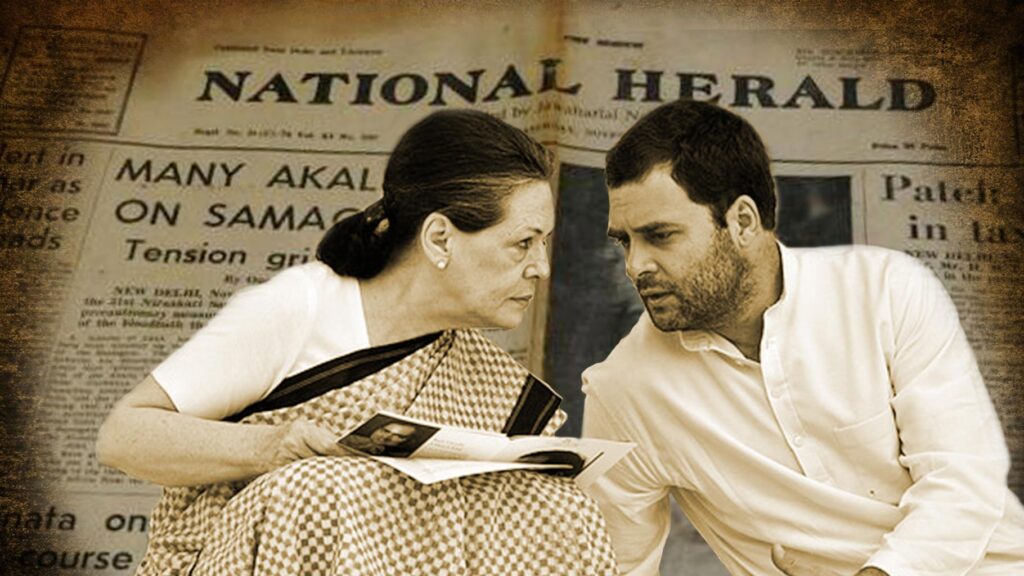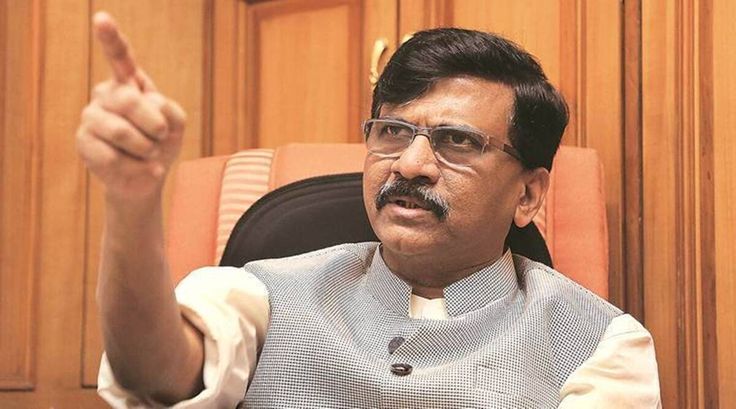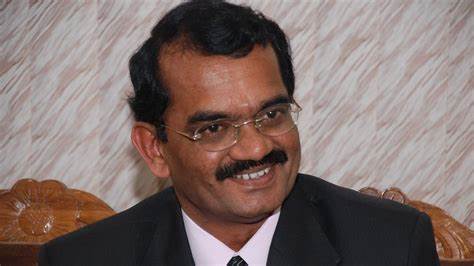What’s the New Twist in the National Herald Case?
The Enforcement Directorate (ED) has introduced a significant new allegation in the ongoing National Herald case: that senior Congress leaders were instructed to donate funds directly to Young Indian, the entity that owns Associated Journals Ltd. (AJL)—publisher of the now-defunct National Herald newspaper.
The ED claims this wasn’t a case of voluntary contributions, but a coordinated effort directed by party leadership to move funds into Young Indian, raising serious legal and political questions. This development intensifies scrutiny over top Congress figures, including Sonia Gandhi and Rahul Gandhi, and reignites a case that’s already being seen as a litmus test of political transparency in India.
Sonia & Rahul Gandhi hatched a criminal conspiracy to take over the assets worth over 2000 crores from National Herald 😱
— SS Sagar (@SSsagarHyd) May 23, 2025
And party men like Revanth Reddy mobilised donations by promising tickets 🤯
Congress & corruption are twins
Explainer on National Herald case pic.twitter.com/FRm6n0NuyN
What Exactly Is the ED Alleging, and Why Does It Matter?
According to Enforcement Directorate (ED) sources, several Congress leaders have either testified or submitted documentation indicating that they were “instructed by senior leadership” to make donations to Young Indian, a not-for-profit company in which Sonia Gandhi and Rahul Gandhi reportedly hold a combined 76% stake. The ED alleges that these financial contributions were not made voluntarily but were strategically coordinated and potentially in violation of political finance norms, tax laws, and corporate regulations.
Among the key figures under scrutiny are Telangana Chief Minister Revanth Reddy and Karnataka Deputy Chief Minister D.K. Shivakumar (DKS). As powerful state unit leaders, both are being investigated for allegedly facilitating or complying with party-level directives to route funds toward Young Indian. The ED is examining whether Revanth Reddy and Shivakumar mobilized state resources, party donors, or campaign funds for these transactions, potentially making them instrumental in executing a centralised financial strategy driven by the Congress high command. Given that DKS is already under ED investigation in other money laundering cases, his alleged involvement adds legal and political weight to the case.
#BREAKING
— Nabila Jamal (@nabilajamal_) May 23, 2025
DK Shivakumar confirms that he and his brother DK Suresh donated Rs 25 lakhs to Young Indian
Statement follows ED chargesheet in National Herald case, which links the brothers to a Rs 2.5 Cr donation allegedly on instructions of Congress high command
Telangana CM… pic.twitter.com/1FaikiwUup
The ED’s investigation focuses on whether these “donations” were actually political funds being diverted into a private entity, and whether the Congress party misused its tax-exempt status to bail out Associated Journals Ltd. (AJL)—a defunct newspaper company—by transferring its ₹800 crore worth of assets to Young Indian. If proven, this could establish that senior Congress leaders and state heads like Revanth and DKS personally enabled or benefited from a potentially unlawful transfer of wealth, triggering charges under the Prevention of Money Laundering Act (PMLA). The case is no longer about isolated transactions—it’s now seen as potentially reflecting a broader financial design executed through top-down party coordination.
What Is the Background of the National Herald Case and Young Indian’s Role?
The National Herald case originated in 2012 when BJP leader Subramanian Swamy filed a complaint alleging financial misappropriation by top Congress leaders. At the core of the controversy is the transfer of control over Associated Journals Ltd. (AJL)—publisher of the now-defunct National Herald newspaper—to a relatively new, not-for-profit company called Young Indian, in which Sonia Gandhi and Rahul Gandhi hold the majority stake. The Congress party had allegedly extended an interest-free loan of over ₹90 crore to AJL, which Young Indian later acquired by taking over all its shares. This allowed Young Indian to gain control over AJL’s extensive real estate assets across India, valued at over ₹800 crore. While the Congress claimed this move was intended to revive a historic media institution, the ED argues it was a veiled real estate takeover executed through a non-profit shell, thereby avoiding taxes and market valuation scrutiny.
The new layer to this background—suggesting that Congress leaders were instructed to donate to Young Indian—raises even more serious concerns. It points to a possible pattern of centralized financial manipulation where state-level Congress units or individual leaders were used to funnel funds into an entity tightly controlled by the party’s top leadership. This potentially converts what was previously viewed as a questionable corporate acquisition into a broader case of orchestrated misuse of political funds. The ED’s aim now appears to be demonstrating that this was not just administrative sloppiness but a coordinated scheme to consolidate assets and finances under a family-controlled entity, possibly in breach of the law.
How Has the Congress Responded and What’s Next Legally?
The Congress party has vehemently rejected the ED’s claims, calling the investigation a politically motivated witch-hunt aimed at discrediting the party’s leadership ahead of national elections. According to Congress spokespersons, the loan extended to AJL was lawful, properly recorded, and intended solely for the revival of a historic newspaper associated with India’s freedom movement. They emphasize that Young Indian is a Section 25 non-profit company, and no personal profit was derived by its shareholders, including the Gandhis. The party has also accused the ruling BJP of using the ED to carry out a media trial, pointing out that the same facts have been under judicial review for years.
Despite Congress’s rebuttals, the ED continues to tighten its focus. The agency has summoned or questioned a wide array of Congress functionaries, including Rahul Gandhi, Sonia Gandhi, treasurers, and now key state leaders like Revanth Reddy and D.K. Shivakumar. Legal experts suggest that the case’s future hinges on whether the ED can establish intent, illicit benefit, or any quid pro quo in the transactions. If the court accepts the ED’s framing under the Prevention of Money Laundering Act, this could escalate into a full-fledged criminal trial. For Congress, the implications are not just legal—they are deeply political, touching on the credibility of its financial operations and the narrative of dynastic control.





















